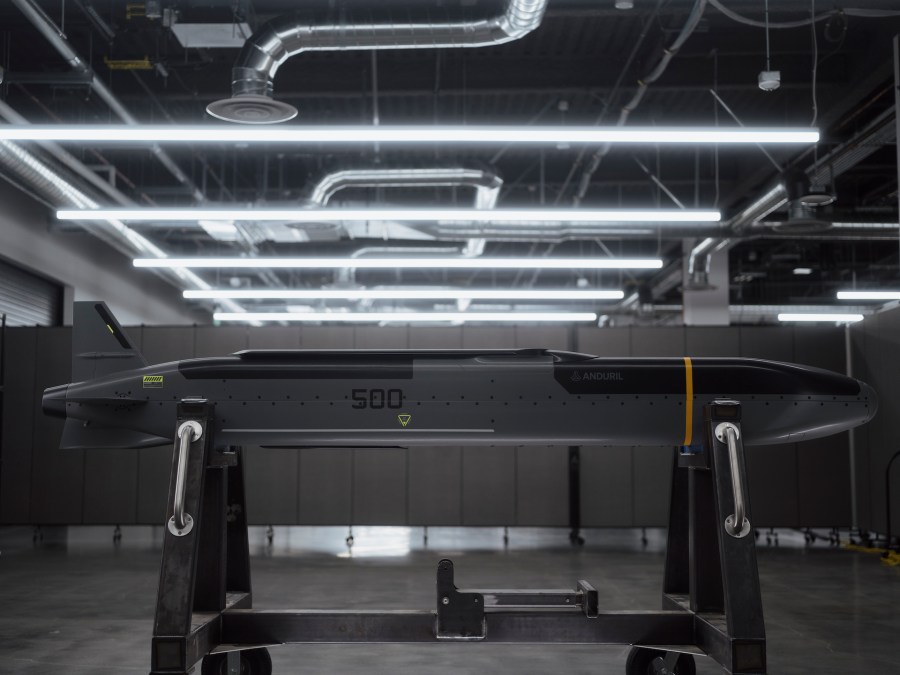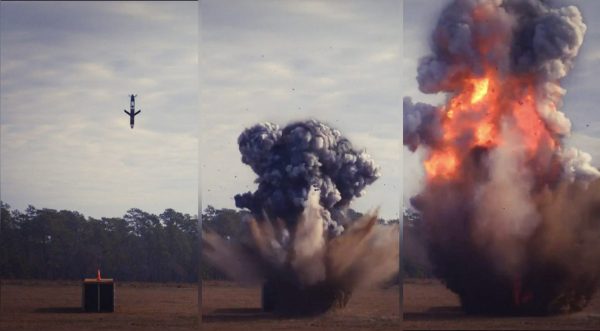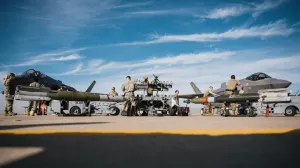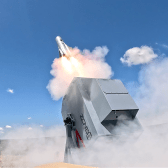DIU, Air Force move forward with 2 vendors to next phase of Enterprise Test Vehicle program

AURORA, Colo. — The Defense Innovation Unit has chosen Anduril and Zone 5 Technologies to move to the next phase of a program aimed at developing an affordable and modular air vehicle for the Air Force.
The two companies announced this week that they have progressed to the second phase of the Enterprise Test Vehicle (ETV) program, beating out Integrated Solutions for Systems and Leidos Dynetics for the follow-on agreement. The effort initially looked to create an inexpensive air vehicle to test new capabilities and subsystems, but now the ETV prototypes are expected to become the baseline architecture for a future palletized munitions platform.
The down-select follows an initial award in April 2024, when DIU announced it was partnering with the Air Force’s Armament Directorate on the ETV program and had awarded contracts to Anduril, Zone 5 Technologies, Leidos Dynetics and Integrated Solutions for Systems.
The vendors were first tasked with developing and flying an air vehicle that featured an open systems architecture to enable subsystem integration, as well as proving industry could rapidly build and scale production of the platform, Steve Milano, director of Anduril’s strike and air dominance sector, told a group of reporters Monday on the sidelines of the annual AFA Warfare Symposium. Companies were also required to prioritize commercial off-the-shelf parts to reduce supply chain bottlenecks and keep the platforms affordable, according to DIU.
The next phase — expected to last around six months — is “intended to not just iterate on the existing design of that platform, but also demonstrate some of the network collaborative autonomy,” Milano said.
Anduril conducted a successful flight test of its offering for the program — the Barracuda-500 autonomous air vehicle — in September 2024, the company announced Tuesday. The test demonstrated a “successful vertical launch from a cell designed to emulate palletized employment from air-lift aircraft, autonomous navigation and flight for over 30 minutes, successful capture of a GPS coordinate target identified in Lattice and autonomous terminal guidance to the target,” according to a statement from Anduril.
Zone 5 Technologies’ ETV prototype is a system called Rusty Dagger Open Weapon Platform, which “has rapidly demonstrated mature system capability and quickly transitions towards scaled production and mission readiness,” the company said Wednesday in a statement. “Rusty Dagger has successfully performed end-to-end mission demonstrations, including palletized launch, pylon launch, long duration missions, and high accuracy terminal engagement.”
One mission set that DIU and the Air Force are eyeing for the ETV platform is the Franklin Affordable Mass Missile (FAMM) program, which seeks a palletized munition that can be deployed in large quantities via air drop from cargo aircraft.
Milano explained that once the second phase of the ETV program concludes, it will transition into “a formalized requirement to go after a capability set, and that capability set is answered by a program of record called FAMM.”
Anduril’s flight tests in 2025 will demonstrate simultaneous vertical launch of multiple Barracuda-500 vehicles, in-flight communications and how the company’s autonomy stack can enable collaborative autonomous flight, according to an Anduril press release. The company will also produce the air vehicles to prove out the platform’s ability to be rapidly and affordably manufactured, it noted.
The Air Force is also pursuing a separate effort to use the ETV platform for its Extended Range Attack Munition program, intended for foreign military sales to Ukraine, according to a report from Aviation Week. However, the status of the program is unknown due to the pause in military assistance to Kyiv. At the same time, the ETV program was selected for the Defense Department’s Replicator initiative, which aims to rapidly field thousands of small drones in the Indo-Pacific to counter China’s ongoing military buildup.






